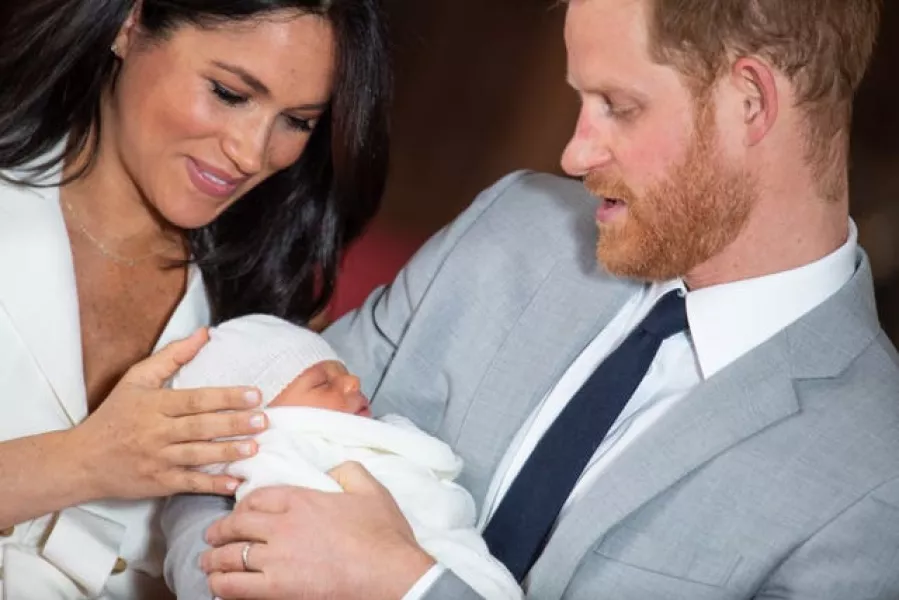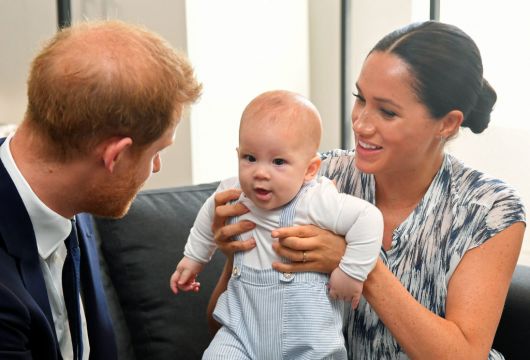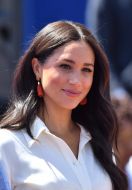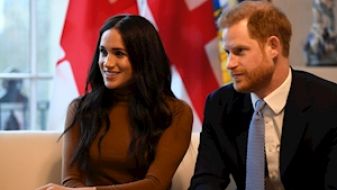The Duchess of Sussex has suggested it was her son Archie Mountbatten-Windsor’s “birthright” to be a prince and the decision not to give him a title went against convention.
She expressed her shock at being told he would not get security and the idea of him “not being safe”, and said she wanted him to have the title so he could have police protection.
Meghan also suggested that the decision was taken because of Archie’s race.

The duchess shared her upset at the “idea of the first member of colour in this family, not being titled in the same way that other grandchildren would be”.
“It’s not their right to take it away,” she added.
Oprah Winfrey asked in the televised tell-all: “Do you think it’s because of his race? I know that’s a loaded question.”
Meghan replied: “In those months when I was pregnant, all around this same time, so we (had) the conversation of he won’t be given security, he’s not going to be given a title.
“And also concerns and conversations about how dark his skin might be when he’s born.”

But Archie was not entitled to be a prince because of rules set down by King George V more than 100 years ago.
And being a prince or princess does not automatically mean royals have police protection.
Princess Beatrice and Princess Eugenie’s security is no longer paid for by the taxpayer.
Because of the Queen’s long reign and extended family – her great-grandchildren – Archie is too far removed from the throne to be a prince.
But he will be entitled to be an HRH or a prince when the Prince of Wales accedes to the throne.
Harry’s great-great-grandfather, George V, issued a Letters Patent in 1917.

It read: “…the grandchildren of the sons of any such sovereign in the direct male line (save only the eldest living son of the eldest son of the Prince of Wales) shall have and enjoy in all occasions the style and title enjoyed by the children of dukes of these our realms.”
Only Prince George – as a great-grandson of the monarch down the direct line of succession to the throne – was originally entitled to be a prince.
He is the eldest son of the eldest son of the Prince of Wales.
The Queen stepped in ahead of George’s birth to issue a Letters Patent to ensure all the Cambridges’ children would have fitting titles.
Princess Charlotte would have been a Lady and Prince Louis a Lord had the Queen not intervened, and they would have not been HRHs.
But they are the children of a future monarch, whereas Archie is not, and he will move down the line of succession if the Cambridge children have their own families.

Other title options were open to Harry and Meghan.
As the first-born son of a duke, Archie could have become Earl of Dumbarton – one of Harry’s subsidiary titles – or Lord Archie Mountbatten-Windsor.
Eventually Archie will also be entitled to succeed Harry as the Duke of Sussex.
At the time of his birth, a royal source said Harry and Meghan had decided he should be a regular Master Archie Mountbatten-Windsor.







